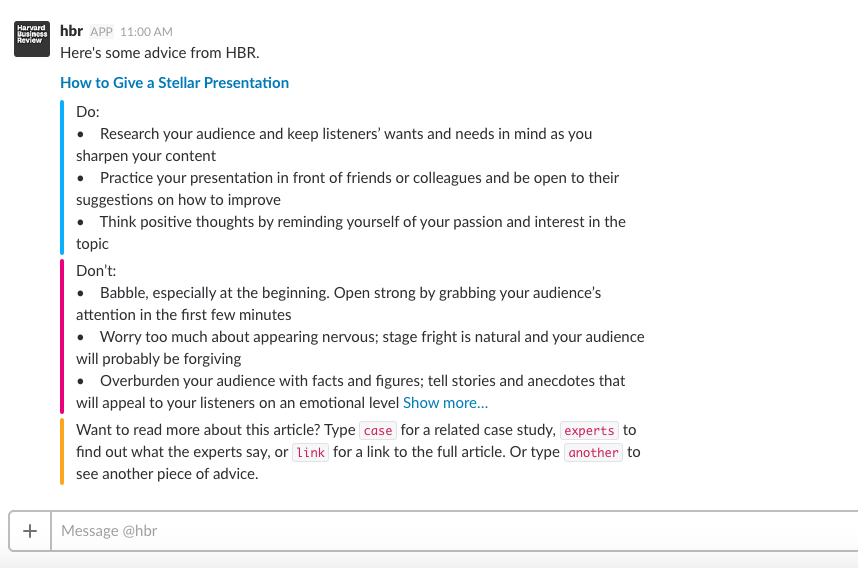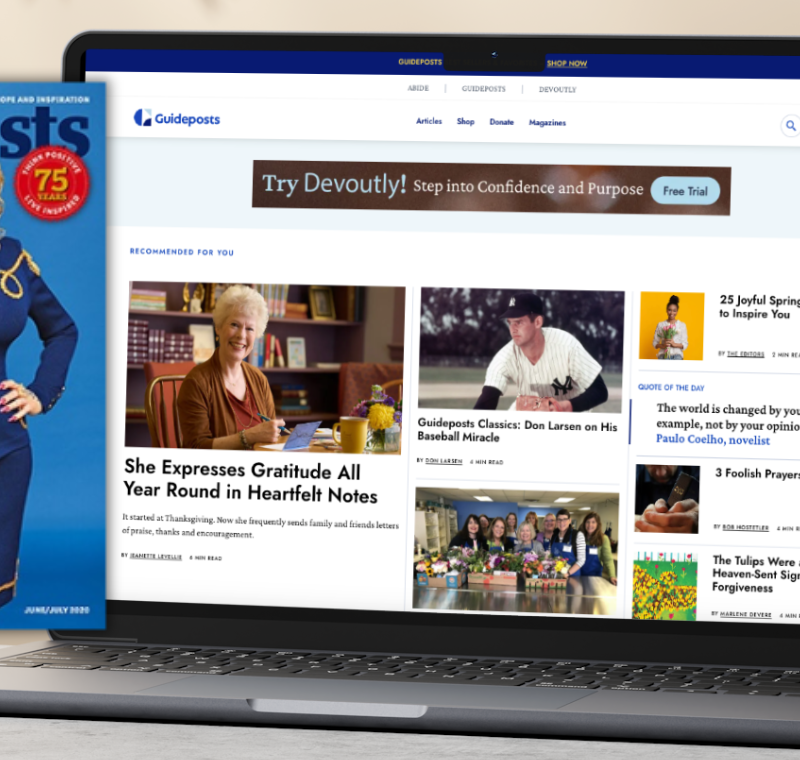Following its success with Slack, Harvard Business Review expands bot strategy
“Our focus has been on how we increase the number of people having very regular, frequent interactions with HBR content,” according to Walt Frick, senior editor. “We know that that’s one of the biggest predictors of getting people to subscribe, and so, we thought a lot about what are the daily, or at least, weekly interactions people could have with HBR content that might introduce them to the brand, and potentially get them to subscribe.”
 |
In the last year and a half, Harvard Business Review has been focusing on chat as a platform to reach their audience and new audiences. “We think these are really great opportunities for people to have regular interaction with our content,” Frick said.
***Don’t miss Josh Macht, EVP and group publisher of Harvard Business Review, at the upcoming 41st FIPP World Congress, where he will deliver a keynote on future trends for publishers. Find out more and/or register at fippcongress.com***
As a platform, Facebook Messenger appealed because of its scale and potential HBR audience. “And, it’s an intimate interaction in the sense that you get a mobile notification when we send you a message and you’re interacting with us in a channel that you would otherwise be messaging with friends,” he said. “The overall hope is you sign up and every morning you’ll get the latest articles from HBR sent to you in that chat channel, with a notification on your phone.”
The new bot is aimed at a couple of different audiences, Frick explained: at the existing Harvard Business Review subscriber audience who are loyal and highly-engaged, and also at a broader audience who are not yet paying subscribers but working professionals who are interested in what HBR has to say.
These bots (Slack and FB Messenger) are the first step in bot-evolution for the Harvard Business Review, according to Frick.
“Our first step has been, lets go to these chat platforms we know people are already using, where we know there are significant audiences, including people who interact with us in other ways, and lets do what we already know how to do very well, which is take high-quality content and share it with those audiences in ways they find interesting and compelling.”
Currently, they’re taking baby steps rather than giant leaps with their bots, Frick explained. “Content delivery is something we know we can do very well from the get-go, so that’s where we started,” he said. “So far, our focus has been on the fact we can tie frequency to subscription.”
Frick explained they wanted to launch the simplest possible version of a bot for a few reasons. “One, we wanted to get it out quickly, and two, we wanted to validate our hope that our audience was on Facebook Messenger,” he said.
If they confirm that there is a large group of people on Facebook Messenger who want to hear from HBR in their messages (rather than on social media or email), then that will lead to the next question: “could we convert it into a more bot-like experience, where you’re either dealing with a pre-programmed question and answer system, or some sort of machine-learning-driven system?”
 |
Building off Slack success
This new Messenger bot comes after Harvard Business Review’s success with their first bot on the Slack platform, which was launched last year.
“We’re really pleased with how it’s done since its launch,” Frick said. “In some ways, our Slack bot was the riskier of the two. With Facebook, while we still need to see how it performs, because the Facebook Messenger audience is absolutely huge, in some ways, that’s a little bit safer.”
With Slack, there were very few publisher bots or content delivery experiences in Slack, he explained. “So we felt we were taking a bigger risk, but Slack is primarily how people work and so it seemed really well aligned with our content.”
Frick said they now have over 10,000 who’ve signed up to Harvard Business Review’s Slack bot. “Some of our Slack subscribers are interacting with that content, asking for more information, asking for deeper dives into the content, and we’re getting really good feedback from the content, so we’re thinking about how do we improve the bot, over time,” he said.

Bot metrics are unlike anything else
Sharing lessons from their experience, Frick mentioned that it took some time to work through what the metrics and reporting for the bots would be. “It doesn’t quite parallel any of our other platforms when we think about metrics,” he said.
“Our primary metric is audience signed up to receive content from a bot, but then we had to think about different metrics like an unsubscribe rate, also things like how many messages are people sending to the bot,” he said. “The biggest thing we learned is that you can’t measure the success of these things or report out on them in the same way as social or web analytics. They work on a different scale.”
This is just the beginning of Harvard Business Review’s forays into chatbots. Frick said they are interested in thinking about narrow, contained experiences for the future.
“We think chat platforms are a big opportunity where a lot of people are, and are looking for content,” he said. “The idea of bots and interactive software is promising. What comes next is harder, but also about saying how do we actually design experiences that are more sophisticated and that can draw in and delight users in ways that they couldn’t get on email or social.”
***Don’t miss Josh Macht, EVP and group publisher of Harvard Business Review, at the upcoming 41st FIPP World Congress, where he will deliver a keynote on future trends for publishers. Find out more and/or register at fippcongress.com***
More like this
Harvard Business Review editor on Africa, Apple and why the rules of business matter
[Congress speaker Q&A] How Harvard Business Review is embracing the future
How to develop your chatbot strategy
How chatbots are going to change the world and the media landscape
Measuring chatbots, and what makes for success








